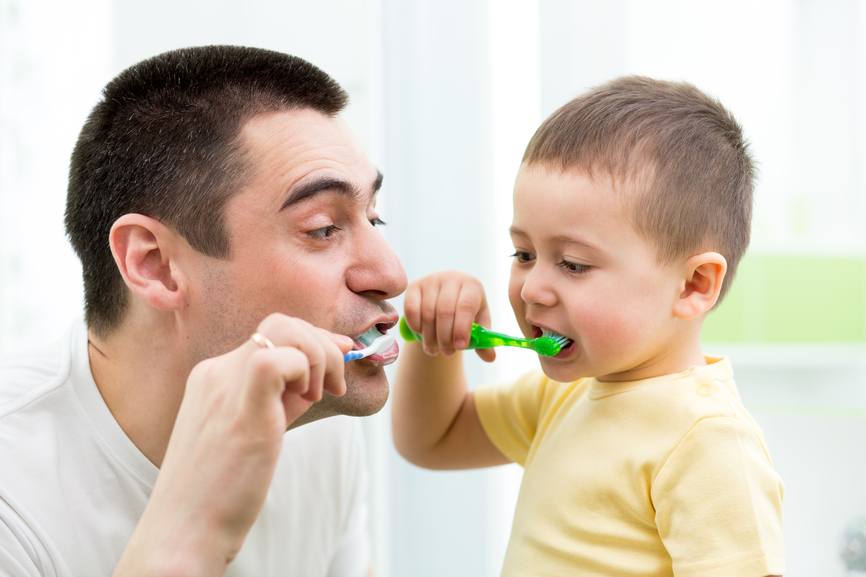What’s The Best Way to Floss
We all know we should floss, but it can be tough. Part of this is because flossing can feel like an extra task in an already busy day, but it...

Your children look to you to learn how to navigate the world. And the habits that you help them build in their youth will stay with them for life. It’s on your shoulders to ensure that they not only build strong, healthy teeth, but take proper care of their mouths. Helping them embrace oral hygiene and regular dental appointments in their early years is a way to encourage enduring, positive attitudes toward dentistry. Sound like an overwhelming task? It doesn’t need to be. With this simple guide, you’ll know that you’re giving your child what he or she truly needs – at every stage of life.
A recent New York Times article discussed the potential link between Vitamin D deficiency in pregnant women and cavities in their babies’ teeth. This got us thinking about dental nutrient awareness. Do you know exactly what your growing baby needs to form adequate enamel? It’s stressful to stay on top of everything recommended for expectant mothers, but there are certain nutrients you’ll want to focus on (for both dental and whole body health):
Keeping your own mouth healthy during pregnancy is also vital. Gingivitis has been linked to early delivery, as well as other complications. Fluctuating hormones make gingivitis more likely to occur. Check with Dr. Hoffman to see how often you should visit during your own pregnancy. He may recommend more frequent checkups to ensure your gums aren’t becoming inflamed or infected.
While tooth formation begins in the womb, it kicks into full force once your children are born. While teeth are in the process of developing, it’s necessary that the child receives proper nutrients. Calcium and fluoride are must-haves for healthy tooth development. Encourage your kids to drink plenty of milk, eat yogurt, and either drink tap water or receive another form of fluoride. Topical fluoride usage (in toothpaste) is recommended for children as soon as they’re able to spit out their toothpaste (somewhere between the ages of 2-6). Dr. Hoffman and our team are always happy to discuss how much fluoride is right for your children. If you stick to a recommended intake, there’s no chance of your children developing fluorosis.
Your child should have his or her first dental appointment around the first birthday. While this may seem early, it’s necessary to ensure proper development and disease prevention. Helping your child feel comfortable in the office will make him or her view future appointments positively.

Helping kids avoid cavities is a necessity. Putting off that first filling will encourage them to view dental care as a comfortable, anxiety-free aspect of healthcare. Because you are the one who brings groceries into the home, you can make the kind of dietary choices that keep your kids’ teeth healthy. Tell your children about the benefits of nutrient-rich eating, and emphasize how healthy foods will help them grow up strong. By providing healthy snacks and meals and eschewing sugary alternatives, you’ll help your children appreciate the taste of fruit, vegetables, dairy, and lean proteins.
If you ever have any questions about how to get your kids’ teeth in great shape, please contact our office. We hope to serve as an ongoing resource for dental advice, treatment, and tools. There’s a way to play a significant role in your child’s dental development. Seize the opportunity today to help them see cavity-free smiles for a lifetime, and reap the rewards of excellent oral health.